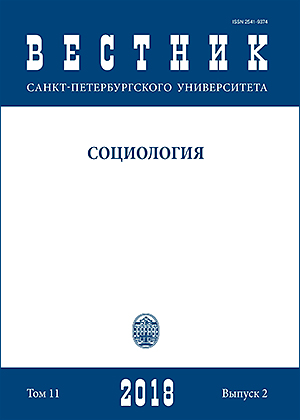Корни революционного фанатизма. Вопрос Феликса Эдмундовича Дзержинского
DOI:
https://doi.org/10.21638/11701/spbu12.2018.208Аннотация
Статья отвечает на вопрос о корнях идеологического фанатизма Ф. Э. Дзержинского. Этот фанатизм, по мнению автора, обусловлен двумя факторами, повлиявшими на личность революционера. Первый фактор — это польские национально-освободительные традиции, второй — христианство. Революционная деятельность, склонность к страданиям, радикализм принципов работы, посвящение частной жизни общему благу были результатами воздействия польской романтической традиции. У Дзержинского можно также найти элементы российского революционного менталитета: верy в собственное призвание, убежденность в правильности личных идеалов, a также уверенность в легкости свержения актуальной общественной и государственной системы.
Всю свою жизнь Дзержинский оставался под сильным влиянием католической веры, считая себя преемником «революционной» деятельности Христа, настоящим апостолом новой версии христианства. Использование религиозных символов для оправдания революции указывает на перенаправление чрезвычайно сильной религиозной энергии Дзержинского на земные цели: спасение человечества и построение нового порядка на осколках старого. Автор развивает мысль о том, что Дзержинский идентифицировал себя с мучеником революции, приносящим в жертву человечеству как свою жизнь, так и свою совесть. Противоречивые влияния польской и русской культуры породили эффект «смешанной» идентичности, который Дзержинский пытался излечить фанатизмом, героической работой и полным подчинением себя партии. Фанатичная личность, таким образом, являлась наиболее подходящей для формирования организации, состоящей из людей, способных пожертвовать всё, даже себя, для блага революции.
Ключевые слова:
русская революция, революционные лидеры, большевистское движение, фанатизм, социализм, польский романтизм, Ф. Э. Дзержинский
Скачивания
Библиографические ссылки
References
Загрузки
Опубликован
Как цитировать
Выпуск
Раздел
Лицензия
Статьи журнала «Вестник Санкт-Петербургского университета. Социология» находятся в открытом доступе и распространяются в соответствии с условиями Лицензионного Договора с Санкт-Петербургским государственным университетом, который бесплатно предоставляет авторам неограниченное распространение и самостоятельное архивирование.




